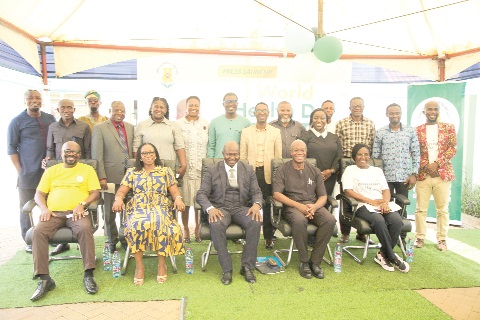“We must come together to save our sisters, our women and our children for a better Ghana.
“Unfortunately, nearly 300,000 women lose their lives each year due to childbirth complications globally, with more than two million babies dying in their first month of life, while around two million are stillborn from largely preventable deaths,” the acting Director General of the Ghana Health Service (GHS), Professor Samuel Kaba Akoriyea, has said.
He was speaking at the launch of a year-long national campaign to address maternal and newborn mortality in the country, on the theme: “Healthy beginnings, hopeful future.”
It aimed at bringing all sectors and society together to improve the survival and wellbeing of mothers and their babies.
Transformation
Prof Akoriyea stressed the need to cooperate and partner with the government to transform the country’s healthcare system into a seamless, inclusive and equitable one for all.
He said that a collective action must be started with stakeholders across all sectors joining hands to build a healthcare system that served every citizen, especially women, children and the most vulnerable.
“This is the time for cooperation and partnership. We must mobilise our spirit of togetherness and strengthen our collaboration to build a seamless healthcare system.
“We must synergise our efforts in prevention, health promotion, curative services, rehabilitation, palliative care and pathology to benefit every person living in Ghana,” he said.
Situation
Prof Akoriyea said that there had been a marginal reduction in maternal mortality, with the current ratio being at 263 deaths per 100,000 live births, with that of children being 38 deaths per 1,000 live births.
He described the numbers as being too high, saying “they are unacceptable and we must act with urgency”.
Prof. Akoriyea, therefore, said citizens must view each maternal and child death not only as statistics, but a national failure with far-reaching consequences.
As part of measures to ensure good health outcomes, he said the GHS would introduce a community scorecard system to allow healthcare clients to evaluate the performance of health facilities.
“We are shifting the paradigm. Patients are no longer passive recipients of care, but stakeholders.
Their experiences will help shape a system that works for all of us.
“We cannot solve 21st Century health problems with 20th Century bureaucracy.
We need fresh thinking. We need consensus. And yes, we must sacrifice,” Prof. Akoriyea said.
Social behaviour
The acting Director, Health Promotion Division, GHS, Mabel Asafo, stressed the need to promote social behaviour change communication to challenge harmful practices, debunk myths, and raise awareness about the importance of early health interventions.
“We need to empower families with the knowledge they need to ensure that every child has the chance to grow up healthy and every mother can give birth safely.
“This work requires the collective effort of all—the government, healthcare providers, civil society organisations, and most importantly, the media, which is vital in amplifying messages that change lives,” she said.
The Country Representative of the World Health Organisation (WHO), Dr Frank Lule, commended Ghana for its progress in reducing maternal and child mortality but called for an increase in investment to achieve the country’s health targets before the 2030 Sustainable Development Goal deadline.

